 Michael Conklin, Texas A&M University, Scott’s Tots and Contract Formation: Is Michael Scott Contractually Bound to Pay? Join an interactive discussion on whether everyone's favorite boss, Michael Scott, entered into a binding agreement when he promised to pay for college to a group of third graders if they graduated high school. This elicits discussion on nearly every issue of contract formation including consideration, capacity, ambiguity, statute of frauds, revocation, and the objective theory of offer and acceptance.  Enrique Guerra-Pujol, University of Central Florida, HACKING HARVARD: Law, Ethics, and the Dawn of the Facebook Era My classroom teaching session will consist of an interactive role-play game based on a real-life hacking incident that occurred at one of the most prestigious universities in the world.  Kent Miller, Winthrop University, Building Skills for Advocacy Within a typical semester of business law, students learn about many different areas of the law: contracts, torts, forms of business, and constitutional law, among others. Yet part of the challenge in teaching within an undergraduate business law course is to make the material accessible and relevant to the everyday lives of students.  Kim Petrone, University of Arkansas, A Series of Unfortunate Tweets Grabbing students' attention with the story of Elon Musk and the 420 Tweets, I teach fundamentals of corporate governance and investor protections. This real-life drama brings terms and concepts to life in a memorable and easy-to-comprehend way.
6/4/2021
Prof. Michael Conklin, Angelo State University Oops, Did You Offer to Sell a $30 Million Harrier Jet? This classroom activity centers on a Pepsi commercial from the 1990s, available on YouTube, as a vehicle for exploring issues of contract law. The commercial featured a $30 million Harrier jet, which in theory would be available per contest rules for only $700,000. The Pepsi Points promotion in the commercial led to a real-life lawsuit. The classroom activity explores contract formation issues including offer, acceptance, advertisements as offers, the reasonable person standard, adequacy of consideration, and legality. It challenges students to consider practical, real-world implications beyond what the law dictates, including the merits of “winning” a lawsuit after years of litigation versus avoiding the lawsuit in the first place. Prof. Debbie Kaminer, Baruch College/CUNY Vaccines in the Time of COVID-19: Using Vaccine Mandates to Teach about the Legal and Ethical Regulation of Business This presentation uses the question “Can government and businesses mandate the Covid-19 vaccine?” as a starting point for an interdisciplinary lesson appropriate for a variety of business law classes. Real world business dilemmas often have many parts to them, and this timely and engaging question pulls together different legal concepts including constitutional law, administrative law, stare decisis, the Commerce Clause, the Supremacy Clause and employment discrimination. The question also raises issues of ethics and behavioral economics, which will help students integrate their learning across disciplines. Additionally, the lesson will develop students’ analytical and critical thinking skills. Prof. Evan A. Peterson, University of Detroit Mercy Legal Analysis Complete? Congratulations, Your Work Is Only Half Done . . . Introducing the Home Depot Crisis Management Exercise Businesses increasingly view legal knowledge as an empowering mechanism to create value, foster relationships, and manage future risk. Business law and legal environment courses should foster holistic examinations not only of legal analysis but also legal strategy, business strategy, and ethics. This classroom exercise introduces the Delphi Method technique for structuring group communication and building consensus. Students are asked to employ this method as they consider specifically how Home Depot should respond to a class-action lawsuit arising out of an alleged shoplifting incident. Prof. Sean James Shannon, SUNY Oneonta Beyond the Classroom Walls: Virtual Exchange and Collaborative Online International Learning Project for Teaching Business Law Students Contract Law: A Primer for International and Domestic Collaborative Learning Recognizing the need for students to develop broader cultural understanding, a global perspective, and skills necessary to engage in negotiations and work with other international collaborators, this classroom exercise presents a collaborative international virtual classroom learning project to teach undergraduate business law students in the United State and Finland contract law. American and Finnish students work together as teams over several weeks to draft a contract for a US musician touring in Finland or a sponsorship contract for a Finnish athlete to market a soccer sneaker for a New York-based company. The project could equally be applied to domestic virtual exchange projects between college classes in the United States.
 Professor Michael Fricke University of Illinois, Gies College of Business HBO for ADR: Using TV's Silicon Valley to Understand Alternative Dispute Resolution "This lesson uses a popular television show, HBO’s Silicon Valley, to present a surprisingly realistic, and legally accurate, example of an arbitration hearing. By comparing the fictional arbitration hearing to a typical litigation proceeding, students are able to understand ADR methods and how they differ from litigation. Second, by incorporating this lesson toward the end of the semester, students are able to synthesize and apply concepts learned earlier in the course to a scenario that incorporates issues of contract formation, ownership of intellectual property, and employer-employee relationships."  Professor Joshua Perry Indiana University, Kelley School of Business Using the Sadhu to Teach about Ethical Blindness "Despite having a desire (or a mandate) to increase our students’ awareness of and sensitivity towards ethical issues in business, for a variety of reasons many business law professors struggle with this content-particularly when attempting to integrate ethics in the context of an already crowded business law course. This session discussing The Parable of the Sadhu and exploring the concept of “ethical blindness” presents an interactive opportunity to engage undergraduate, MBA, or executive education business students."  Professor Matt Roessing University of Georgia, Terry College of Business Introducing Frolick & DeTour, LLP "The Frolick & DeTour role play brings experiential learning into the classroom. Three or four times per semester, actors posing as “clients” visit the classroom to consult with students on a legal problem. The students must apply what they’ve learned, giving the client some advice on the fly and then submitting a written memorandum with detailed analysis. Frolick & DeTour is an experience that students can take with them into the real world."  Professor Sean Shannon State University of New York, College at Oneonta Teaching Business Law Students the Basics of Civil Litigation through the Case of the Sleeping Yankee Fan "At a Major League Baseball game held at Yankee Stadium on Saturday, April 13, 2014 between the Boston Red Sox and the New York Yankees a fan was captured on television dozing in the stands during the game and ESPN sports announcers took note. From the less than two-minute verbal exchange between the announcers, subsequent fan blog commentary, and the image of a fan dozing at the game, a $10 million lawsuit ensued, a Decision and Order was entered, and a fun pedagogical exercise was realized."  Professor Mystica M. Alexander Bentley University Using the Flipped Classroom to Teach Product Liability "Course goals for our Legal Environment of Business course include: (1) Our students will practice critical thinking and analysis and will enhance their writing and communication skills. Using the flipped classroom approach allows for approximately 50 minutes of class time to be used for student debate on five separate product liability fact patterns and provides students with an interesting and fun approach to critically analyzing the legal aspects of product liability. This approach pushes students to focus on their critical thinking skills because for the majority of students engaging in a debate inspires them to give their best to "win" (by class vote) their side of the case."  Professor Cristen W. Dutcher Kennesaw State University Create a Law Day "These one day, in class group activities engage students with the aspects of the law which they will most likely encounter in their futures. The learning objectives for the Create a Law Day activities are to foster critical thinking about the law by giving students an opportunity to identify legal issues in real world scenarios and then analyze how those issues can affect an outcome, which aligns with the objectives of identifying and interpreting the impact that the legal environment has on business situations. Each Day gives students an opportunity to create their own private laws, helping them see how the law can be a help to their lives and lessening any intimidation they may feel about the law."  Professor Debbie Kaminer Baruch College/CUNY The Meaning of “Sex”: Using Title VII’s Definition of Sex to Teach About the Legal Regulation of Business "This lesson involves teaching about the complexities of the legal regulation of business in the United States through an analysis of whether Title VII’s prohibition on discrimination “because of . . . sex” includes discrimination based on sexual orientation. This is a timely and engaging question, and I have used this lesson in a course I teach on the Legal and Ethical Regulation of Business. I teach this lesson in the second half of the semester and I use it to pull together topics including statutory interpretation, jurisdiction, administrative law, stare decisis, the Commerce Clause and the Supremacy Clause. I also use this lesson to discuss ethical reasoning. In particular, I have students distinguish between whether discrimination based on sexual orientation is unethical, and what branch of government should get to decide if it is illegal."  Professor Ursula Ramsey Limestone College ADA Scavenger Hunt Through this gamification teaching method "Students will demonstrate their knowledge of Title III of the ADA by participating in a scavenger hunt. Students will incorporate technology via use of camera phones. Students will develop effective communication and teamwork skills. Students will develop empathy for individuals covered by the Americans with Disabilities Act." After reviewing the highest number of submissions in several years, the panel of judges has named four finalists in the 2016 Charles M. Hewitt Master Teacher Competition. Each of the finalist submissions will be presented at the Master Teacher Symposium during the ALSB's annual conference in August. The finalists are...
Ross School of Business Professor Lynda Oswald has received national recognition for her teaching by being named the 2022 Charles M. Hewitt Master Teacher by the Academy of Legal Studies in Business.
According to the academy, the competition “highlights the best classroom teaching, particularly the incorporation of new or evolving course subject matter, cultural contexts, pedagogy, and technology.” From a number of submissions, the academy selects four finalists who receive recognition and make teaching presentations to their academy colleagues at the group’s national conference. Oswald was voted the winner of the competition for her presentation titled “Introducing IP Law Through the Use of Narratives, Props, and Audio/Visual Examples.” This fall will mark the 25th year that Oswald has taught Intellectual Property Law at Michigan Ross. The popular elective developed by Oswald typically draws enough MBA students to fill three sections of the course. As intangible assets are increasingly prominent on the balance sheets of business enterprises, knowledge of the legal concepts underlying patent, copyright, trademark, and trade secret are critical to entrepreneurs and managers. “I love teaching intellectual property law,” Oswald said. “Intellectual property assets have exploded in importance and value to businesses, and students recognize that and want to know more. It’s a tremendous honor to be recognized by my peers, but the real joy comes from being able to share my passion with outstanding, engaged students each year at Ross.” One of Oswald’s students, Emily Griffith, MBA '23, commented: "Dr. Oswald teaches Intellectual Property Law with incredible passion that makes every class enjoyable. It is so clear that she is deeply invested in the subject matter and has an impressive knowledge of it. The combination of her enthusiasm and attention to detail helps to make information digestible and also aids students in retaining their learnings beyond their time in her class.” In 2020, the academy honored Oswald and her Michigan Ross colleague Cindy Schipani with its Distinguished Career Achievement Award. Originally posted on the Michigan Ross website on August 11, 2022. |
One of the most important aspects of the Hewitt Master Teacher competition is the way it raises the profile of the people who teach business law across our guild. This is a small sample of the stories about recent winners, which highlight their achievement, but also the great work done by business law professors around the country.
Archives
May 2023
Categories |


















 RSS Feed
RSS Feed
